Possibly emerging as a result of wildlife trafficking and the consumption of wild animal meat, COVID-19 is influencing crime and illicit economies around the world. Some of the immediate effects are likely to be ephemeral; others will take longer to emerge but are likely to be lasting. How is the COVID-19 outbreak affecting criminal groups, both in the short and long term? In particular, how is it affecting trends across the illicit economies of drug smuggling and poaching, wildlife trafficking, and sexual slavery?
Where have all the robbers gone?
As street life has decreased in Europe, North America, and much of South America, predatory street crime appears to have decreased considerably. There are simply no people on the streets to mug. And with people at home, burglaries and home invasions have become more difficult.
People are conducting more of their daily tasks online, particularly via shopping online. The already strong presence of crime in the electronic space will likely increase. Beyond typical efforts to hack bank accounts and online sites storing credit card information, as well as advance-fee (so-called “419”) scams, online loan sharking has a high chance of going up as COVID-related unemployment and global economic downturn leaves many indebted and impoverished. Countries that provide economic relief to those unemployed as a result of coronavirus can expect a rise in scams, with online thieves pretending to represent social security agencies and seek to obtain confidential information.
With more people in the West and Asia at home and bored and access to street prostitution severely curtailed, there is also a chance that online prostitution sites that feature trafficked and enslaved women (as opposed to those who give informed consent to sex work) may see a rise in online trafficking, perhaps stimulating efforts to entrap more women. More time online inevitably means more potential exposure to recruitment by nefarious entities, such as jihadi groups or doomsday cults, portraying COVID-19 as a portend of a forthcoming apocalypse and a justification to purify the land through violence, crime, and fraud.
Among poorer populations that don’t have the luxury to isolate at home, people will be forced to choose risking infection over their and their family’s starvation. In those areas — such as in poor urban areas of Kenya, Uganda, Pakistan, and India — predatory in-person crime may well increase, from robberies, to looting, to, worrisomely, pogroms against ethnic and religious minorities and migrants. In slums, few police are present to patrol.
Finally, wars are a great opportunity for profiteers (recall Orson Welles’ iconic Harry Lime). New “Third Men” hoarding goods in shortage, such as medical or cleaning supplies, and selling them at hiked-up prices, will spring up. Arrests for such criminality have already been made in the United States. Mexico’s most vicious criminal group, the Cartel Jalisco Nueva Generación (CNJG), is reportedly hoarding hand sanitizer in Michoacán. It is not yet clear whether CJNG intends to sell it for a profit, keep it for its own members, or break with its pattern of ruling through brutality über alles and distribute it to local populations for political gain.
Dangerously, they can be profiteering not just from usury prices, but also from selling fake products. Of course, selling shoddy goods is not merely the domain of individual profiteers. China’s firms have long sold toys with poisonous colors and toothpaste with heavy metals to unwitting customers in Latin America and Africa. Its recent deliveries of COVID-19 testing kits and of other medical supplies have been marred by similarly dangerous poor-quality and fake products.
Where has all the booty gone?
Border closures and the shutdown of much international air traffic means that smuggling illicit drugs long distances has become harder. Because people are not on the streets, so has street-level retail. Mexican drug-trafficking organizations (DTOs) are reportedly facing shortages of precursor agents for the production of fentanyl, as traffic from China and India — which normally provide supply — has been disrupted. Since a large portion of drugs globally, including from Mexico to the United States, is hidden in legal cargo, a reduction in legal cross-border traffic also limits smuggling. Isolated countries, such as Australia, may in some months experience a particular drug drought. (Australia is also affected by the Myanmar military’s recent action to suppress a key militia’s meth production.)
But multiple adaptions will take place, some rapidly and some more slowly. In the short term, synthetic opioid production and its sale via the mail is likely to increase, especially in and from India, where law enforcement action has been minimal, and perhaps even from China where, as a result of U.S. pressure, enforcement against illicit production of synthetic opioids has taken place. Synthetic drug production may move closer to retail markets, perhaps even within the same country. But homemade illicit drug cocktails pose a particularly high risk of overdose and adverse health consequences.
In the medium term, DTOs will adapt by stockpiling more precursors, leaving them vulnerable to robberies by rivals or seizures by law enforcement. But the most interesting likely response will be to speed up the use of drones, submarines, and unmanned platforms to deliver drugs, both wholesale and retail. DTOs already use drones to smuggle drugs into prisons around the world and across the U.S.-Mexico border, to steal drug cargo from their rivals, and to monitor terrain for rivals and police.
They have also weaponized drones, using them to assassinate rivals and security forces personnel. Wholesale drug smuggling by drones has been limited by the constrained payload and battery capacities of off-the-shelf drones that drug traffickers mostly use. But with daily advances in payload capacities and drone battery life, those constraints will be decreasing rapidly. Moreover, the shift to the use of synthetic drugs with high potencies in very small amounts will make drone smuggling all the more feasible. Before long, drug users may have access to retail delivery of their daily hit to their windowsill by drone. As legal retail also moves into drone home delivery, hiding illicit drones and drones with illicit cargo will become easier.
Drugs are already smuggled wholesale by semi-submersibles and fully-operational submarines that DTOs build for themselves. Fast-forward 15 years and drug trafficking will also take place by marine drones. While the move to synthetic drugs and drones will reduce the need to control territory, the move to submarines and marine drones will privilege DTOs who control areas that are relatively close to retail.
Where will all the virus go?
East Asian wildlife markets have long been known to be principal transmission areas for deadly pandemics. Wild-caught animals or animal parts — often poached and trafficked — are sold in crowded places with few health controls. Yet as I point out in my book “The Extinction Market,” although wildlife consumption, poaching, and trafficking have been associated with SARS, Ebola, and HIV/AIDS and will produce new zoogenic diseases, policymakers have paid little attention to wildlife trafficking.
In response to COVID, China has banned the consumption of wildlife meat. But it has not banned the trade in wild animals, such as for pets, significantly undermining any potential effectiveness of such a ban. In March, the government of Vietnam, another key poaching, trafficking, and wildlife consumption country, began exploring perhaps a more comprehensive ban on wildlife trade, but no definite ruling has yet been issued.
Depressingly, however, neither ban may last. China similarly banned wildlife markets after SARS. China even enforced the ban, but only for a limited time. Within three years, the country’s wildlife markets were larger than before. This time around, the government of China is exploring making the ban a law: If that happens and the law is actually enforced, the effects could be more lasting and pronounced, particularly if the ban is capacious.
But laws can be reversed. In the United States, the Endangered Species Act, the cornerstone of U.S. and even global conservation efforts, has been under constant threat since the Trump administration came to power. In both China and Vietnam, the large industry around wildlife trade is economically important and politically potent. China’s pharmacological industry peddling traditional Chinese medicine has managed to get its critics, including Chinese medical doctors, arrested because they pointed out that their unproven and often disproven quack potions endanger people’s lives.
In 2019, China muscled the World Health Organization (WHO) to include a chapter on traditional Chinese medicine in WHO’s International Classification of Diseases, a highly influential compendium of medical conditions for diagnosis and treatment, influencing also what illnesses and procedures insurance companies pay for. As memories of COVID-19 wane like they did with SARS, and when an effective COVID treatment become available, the powerful traditional Chinese medicine industry will again pressure China and East Asian governments to promote their unproven and often nefarious wares. Before that, some of those desperately ill with COVID-19 and unable to obtain proper medical treatment will be seeking to buy traditional Chinese medicine. Already, to treat COVID-19, the government of China is promoting the use of bear bile, a potion barbarically collected from caged bears or poached ones without a shred of evidence of its curative effects.
The need to campaign intensely now to reduce demand for traditional Chinese medicine is urgent. But unless powerful vested interests in East Asia are defanged, COVID-19 will not end wildlife poaching, trafficking, and consumption. Tragically and terrifyingly, this most neglected illicit economy will likely unleash another pandemic on the globe several years from now.
In other illegal economies, such as the illegal drug trade, the COVID-19 disruptions will be even more ephemeral. After temporarily wreaking havoc with some types of crime and enabling others, the coronavirus will leave behind the smartest and most adaptable criminal groups.
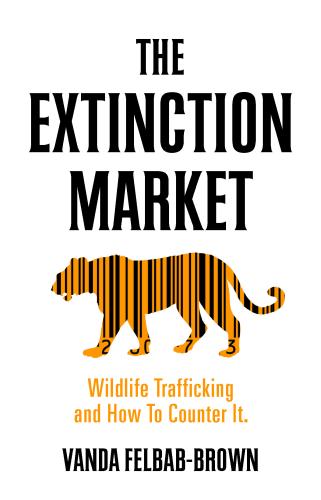
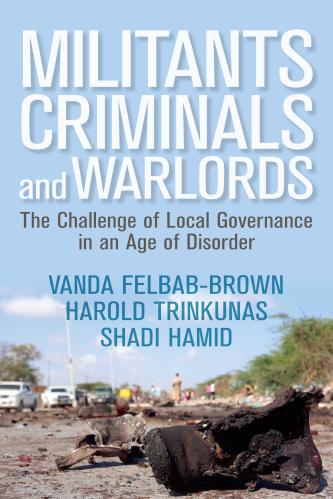
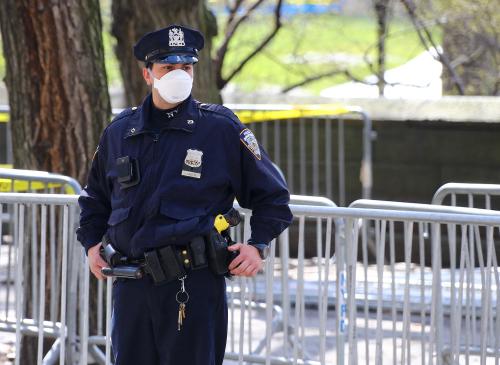
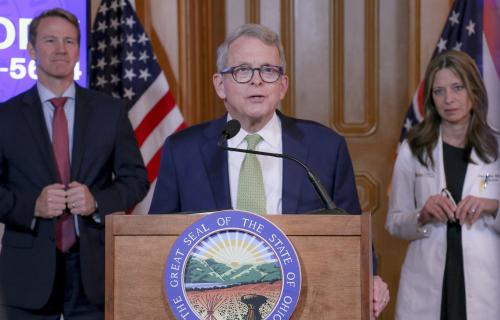
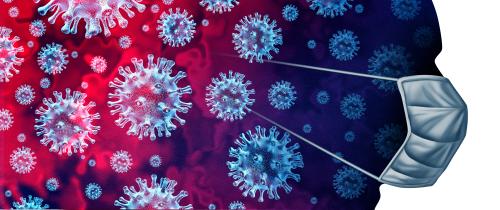



Commentary
What coronavirus means for online fraud, forced sex, drug smuggling, and wildlife trafficking
April 3, 2020